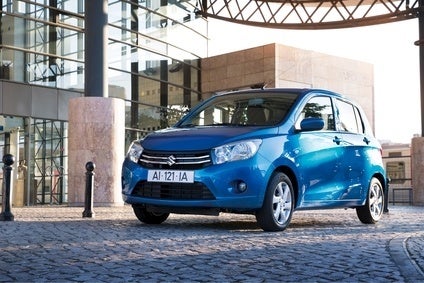
After a government stimulated market binge in 2012, the Thai vehicle market has been left saturated and has declined sharply since. As output of small cars in other countries of the ASEAN picks up, the OEMs’ planning assumptions for manufacturing eco-cars in Thailand are being upset and strategies revised. Tony Pugliese reports.
New vehicle sales in Thailand continued to decline in February, by 10.8% to 63,948 units from already weak year-earlier sales of 71,680 units, according to the Federation of Thai Industries (FTI).

Discover B2B Marketing That Performs
Combine business intelligence and editorial excellence to reach engaged professionals across 36 leading media platforms.
The local automotive market was widely expected to begin its recovery in the first half of this year, after sales plummeted in 2014. The almost 11% year-on-year decline in February comes on top of a 45% drop in the same month of last year.
The domestic economy has failed to pick up momentum amid weak consumer and business sentiment and high household debt. Exports also declined by over 3% in the first two months of the year.
Full-year GDP growth forecasts have been rolled back in the last week following the release of weaker-than-expected export data. The Asia Development Bank now expects full-year GDP growth of 3.6% instead of 3.9%, while the local Kasikorn Research Center cut its growth forecast from 4% to 2.8%.
Bank of Thailand, under the direction of a military government since last May, cut its benchmark interest rate by 25 basis points to 1.75% earlier this month as it attempts to stimulate domestic consumption. A further 25 basis point cut will likely follow in April.
The domestic vehicle market may begin to stabilise in the second quarter, but depressed domestic sentiment makes a strong rebound unlikely this year. A moderate second half recovery will mainly be supported by very weak year-earlier data.
While the FTI expects the market to expand by 25% to 950,000 vehicles in 2015, after declining by 33.4% to 881,832 in 2014, others are less optimistic. Market leader Toyota has revised down its 920,000 forecasts for this year and others vehicle manufacturers expect little or no growth.
The Thai vehicle market and the economy as a whole are still paying the price of the binge that was the first-time buy incentive programme, which expired at the end of 2012.
The more than 80% market growth to 1.436 million units in 2012 was clearly unsustainable and has left the Thai consumer heavily indebted. Economic uncertainty is pushing vehicle owners to extend vehicle life-cycles, while a high number of car loans are still being paid off.
Thai Prime Minister Prayut Chan-o-cha this week voiced his concern about the launch of the second phase of the Thai eco-car programme, questioning whether there is enough demand to soak up the massive additional supply it would bring.
Manufacturers are already struggling with overcapacity as things stand and have backed Prayut’s call for a rethink. Honda and Mazda agree that the second phase should be revised to focus on growth segments of the global vehicle market such as hybrid, electric and other alternative fuel vehicles.
A successful second eco-car phase would have to rely almost entirely on exports and other countries in the region and elsewhere are also producing similar cars. Competition is strong and margins very thin in this segment.
Mitsubishi Motors Thailand president Morikazu Chokki told reporters at this week’s Bangkok International Motor Show that he does not expect the success of the mid-sized pickup truck programme – whereby Thailand became the main source of these vehicles globally – is likely to be replicated by the eco-car programme. A rethink is clearly needed.






